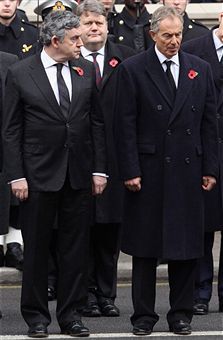 Labour is often seen as having presided over the erosion of the British military,
squandering money on Cold War equipment and sending under-equipped soldiers to far-away battlefields.
Labour is often seen as having presided over the erosion of the British military,
squandering money on Cold War equipment and sending under-equipped soldiers to far-away battlefields.
But away from the public’s scrutiny an even greater lapse occurred – the nation’s cyberdefences were left undermanned while the threat grew daily. As William Hague will tell the Munich Security Conference:
“Along with its numerous benefits, cyberspace has created new means of repression, enabling undemocratic governments to violate the human rights of their citizens. It has opened up new channels for hostile governments to probe our defences and attempt to steal our confidential information or intellectual property. It has promoted fears of future ‘cyber war’. It has enabled terrorist networks to plan atrocities, flood internet chat rooms with their ideology and prey on the vulnerable from thousands of miles away. And it provides rich pickings for criminals. ”
The Brown government only moved forward on the issue under pressure from the then Tory opposition. And then the steps still remained limited while the threat grew. The Strategic Defence and Security Review sought to rectify past under-investment by allocating £650 million to improving cybersecurity.
A continuing problem is the absence of worldwide rules, something the Foreign Secretary proposes an “agreement on a set of standards on how countries should act in cyberspace.” Getting such an agreement, however, will not be easy. For how does one create a set of rules among states like China, Russia, Iran and Israel to behave better, when the risk of getting caught in flagrante delicto remains so low? And how can the British government ensure that it has not started a process that will eventually undermine the freedom the internet, which has proved so vital in Egypt where protesters have used the web to organise themselves?






Comments